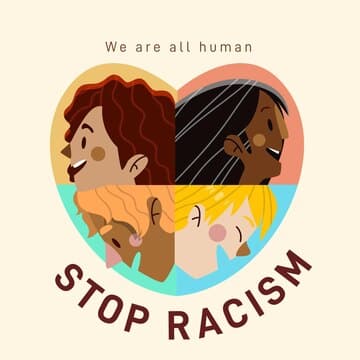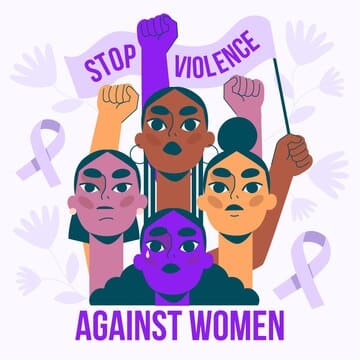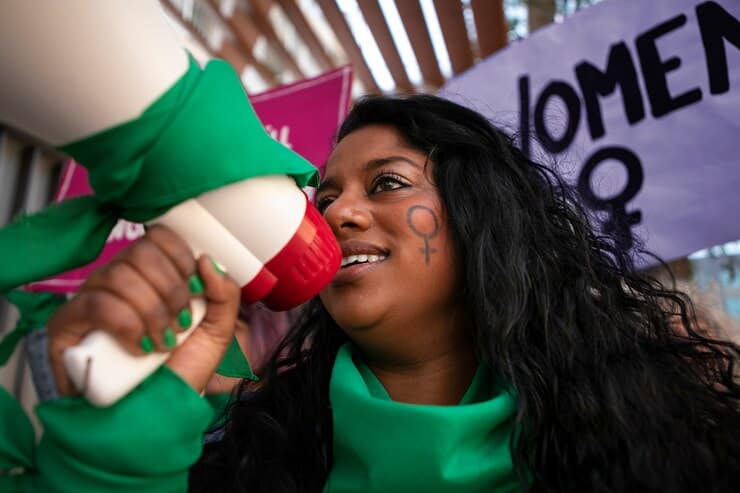Gender-based violence (GBV) remains a pervasive global issue that affects the lives of countless women and girls. While raising awareness about this problem is a crucial first step, it is equally important to transit from awareness to action, mobilize communities to actively combat and prevent GBV. This article explores more on the significance of community mobilization in the fight against gender-based violence and the transformative impact it can have on individuals and societies.
Creating awareness about the various forms of gender-based violence to encourage individuals to share their unique perspectives and experiences on initiatives that shed light on the prevalence and consequences of GBV, challenging societal norms and beliefs that perpetuate violence. When individuals become informed about the different manifestations of GBV, they are better equipped to recognize and address it within their communities.

However, awareness alone is not sufficient to bring about lasting change. It must be accompanied by enforcement actions taken and a collective commitment to get rid of the root causes of gender-based violence.
Building a Culture of Accountability: Mobilizing communities involves cultivating a culture of responsibility where individuals are accountable for promoting respect, equality, and safety. This begins with challenging harmful customs and attitudes that contribute to a tolerant environment for GBV. Community leaders, educators, and influencers play a crucial role in modeling and advocating for healthy relationships based on mutual respect.
Education transpires as a potent tool in community mobilization. Comprehensive programs in schools and community centers can educate individuals about going along with healthy communication, and the importance of observed intervention. By imparting knowledge and skills, these initiatives empower individuals to actively prevent and address gender-based violence.

Empowering Survivors: Community mobilization also focuses on creating support networks for survivors of gender-based violence. Empowering them involves providing access to resources, counseling, and legal assistance. Communities can establish safe spaces where survivors feel heard, believed, and supported without being judged.
Through the support, the groups, counseling services and survivors can rebuild their lives, breaking the cycle of violence. Community-based organizations and shelters play an important role in offering refuge and assistance to those in need. By re-uniting around survivors, communities demonstrate solidarity and actively contribute to their healing process.
Engaging Men and Boys: True mobilization requires the active involvement of all community members, including men and boys. Engaging men in the fight against gender-based violence is essential to dismantle harmful anti-feminist that lead to inequality and abuse. Men can serve as allies in challenging, promoting healthy male chauvinism in relationships, and advocating for gender equality.
Community-led workshops and discussions provide a platform for open dialogue about gender roles and expectations. By encouraging men and boys to reflect on their attitudes and behaviors, communities can reduce a culture that rejects violence and embraces mutual respect.
Local Leadership and Grassroots Initiatives: Mobilization of communities against gender-based violence often begins at the grassroots level. Local leaders, activists, and community organizations play a pivotal role in driving change. Grassroots initiatives can include awareness campaigns, workshops, and outreach programs tailored to the specific needs of the community.
These initiatives empower communities to take ownership of the fight against GBV, ensuring that solutions are relevant and sustainable. Grassroots mobilization also fosters a sense of unity, breaking down silos and creating a collaborative effort to address gender-based violence collectively.

As I conclude, from awareness to action, the journey to mobilize communities against gender-based violence is both transformative and essential. It requires a commitment from individuals, community leaders, and society as a whole to actively challenge and change the norms that lead to violence. By fostering a culture of accountability, empowering survivors, engaging men and boys, and supporting grassroots initiatives, communities can become powerful agents of change in the fight against gender-based violence. It is through collective action that communities can build a safer, more equitable future for women and girls, free from the shackles of gender-based violence.
“Communities hold the key to ending gender-based violence. It’s time to unlock that potential and work together towards a safer, more equitable world.” – Leymah Gbowee
